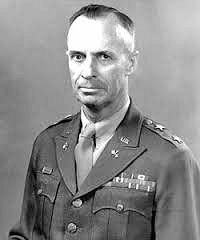When Mary of Magdala went to the tomb on Easter morning, hoping with the other women to give the body of Jesus a proper burial (Friday afternoon’s preparations had been hurried and the bare minimum), her situation was different than all of Jesus’s other followers. The men could go back to their previous jobs and families. At least I can go back to accounting/fishing/building again. They would be humiliated, of course, but that would pass. They grieved for their friend, but lots of people grieve. Some of the men had wished to go back to their previous lives, and wanted assurance from Jesus that what they had given up to follow him was worth it.
Jesus had at least attempted to provide for his mother at the end. “Mother, behold your son; son, behold your mother” he had said to John. As far as we can tell, the other women had come from some sort of families, and after suitable punishment by their patriarchs, would be accepted back. Mary the mother of Jesus would have the greatest grief, of course, but no worse than a thousand other mothers in Jerusalem who had lost sons.
Mary had nothing to go back to. There were always job openings for Beggar, of course, but the other beggars would have been schooled for a lifetime in eliciting pity by appearance and tones of voice. She might not be able to make even a subsistence living. She might give herself as a slave, if anyone would have her – the woman of the house in any rich family might have something to say about the master taking on one of the girls from the Pampered Palestinian Escort Service, no matter how temporarily reformed. Ms. Magdalene had seemingly stayed somewhere the last two nights. Perhaps she had stayed with one of the other women, or one of the disciples – if she could find one out of hiding. But it could have been that she had nowhere, nothing, starting in about two hours.
We might hope that the followers of Jesus would remember at least something of what he taught, and that someone would take a poor woman in and provide for her. But if not, her own family was unlikely to take her back. She had shamed them already and was dead to them. Whatever friends she had formerly had among her customers wouldn’t want to be that close to her new holiness, unless they were utterly depraved and would enjoy even more trying to take advantage of her need. You thought you were something for awhile there, didn’t you – better than the rest of us, huh? Now look at you.
And yet out of love and duty, which are not as incompatible as we make them appear in our era, she wants to give what last little she has in the pointless gesture of doing things up properly for someone who wasn’t even a relative. Just because it was the right thing to do. Just to show gratitude one more time, even if only she noticed.
It was a gift of generosity unmatched by any of Jesus’s other followers, a pouring out of her own self, probably pointlessly, in imitation of his own pointless sacrifice. Just because it had to be done. We lose too quickly in the immediate discussion of the resurrection how great must have been Mary Magdalene’s despair at finding the tomb empty. Even this last ability to give a little gift had been taken from her, and she must have thought as well “My God, my God, why have you forsaken me?”
No wonder that Jesus’s words to her are “Touch me not.” What other impulse could she have had but to wrap her arms around his ankles, touch his face, burrow into his chest, weeping? How did even the Son of God move quickly enough to prevent her?
There are no tears that will not someday be dried, no lonely depths that will not somehow be filled. We hunger; food exists. We thirst; water exists. What else then could hope be for, but for completion?
